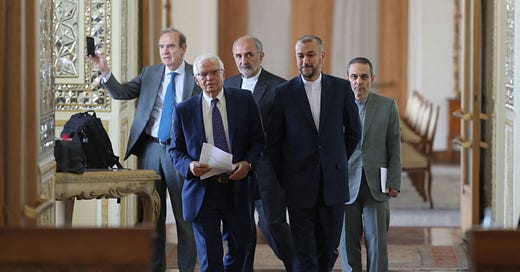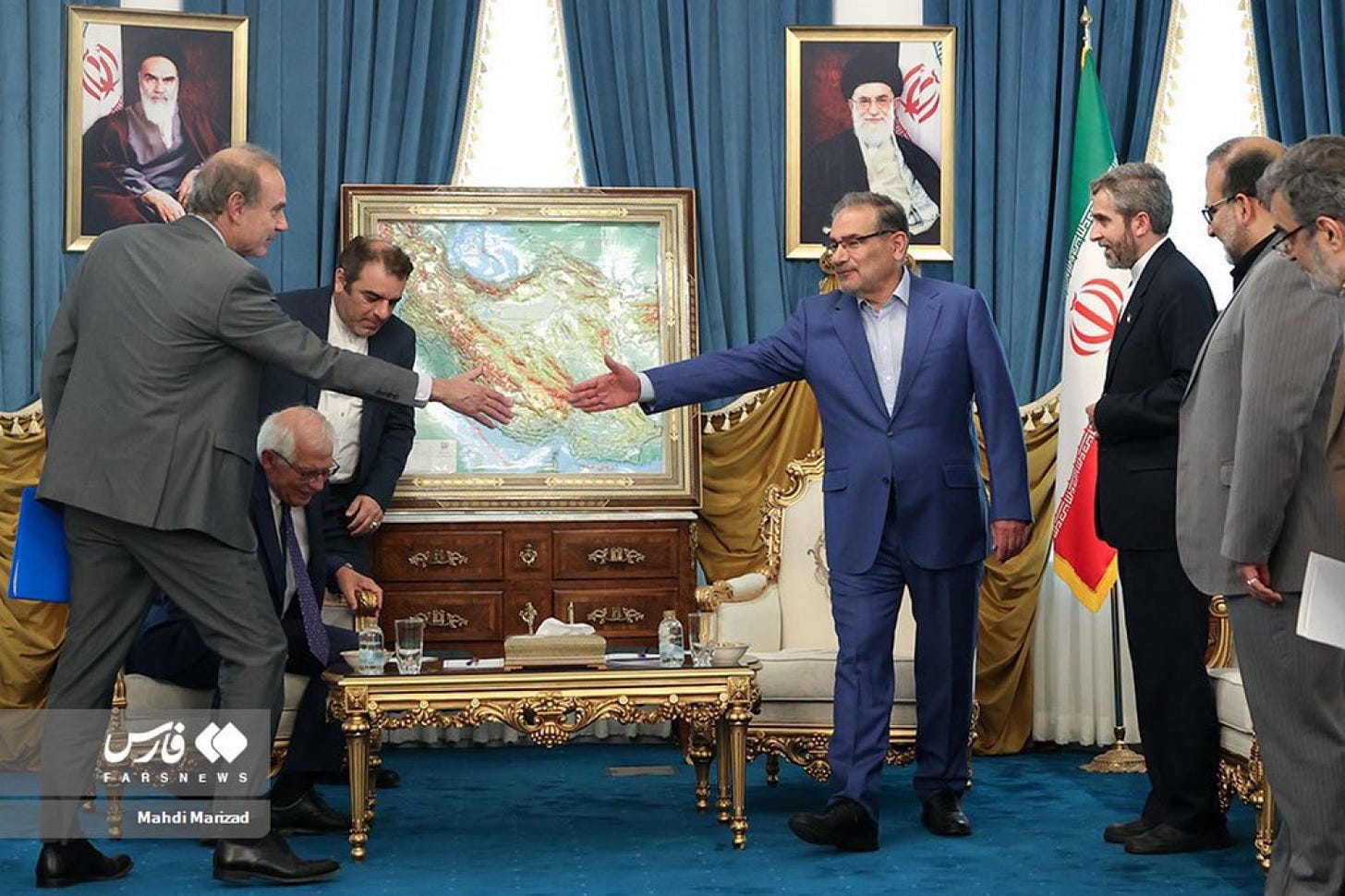EU to mediate US/Iran indirect talks in Persian Gulf to try to overcome nuclear stalemate
Despite good will from Iran and US, "I still don't know if both will be able to overcome their respective political differences," EU foreign policy chief Joseph Borrell said in Tehran June 25.

The United States and Iran will soon hold indirect talks in a Persian Gulf country facilitated by the European Union in an effort to try to revive the 2015 Iran nuclear deal, EU foreign policy chief Josep Borrell said on a two-day trip to Iran Saturday (June 25).
“The US and Iran will talk—not directly—with facilitation by me and my team as coordinator,” Borrell said at a Saturday evening press conference press conference in Tehran, adding the EU-mediated US/Iran indirect talks would take place in a Persian Gulf country.
The indirect talks will likely be held in Qatar, a European diplomat said.
There are “decisions that have to be taken in Tehran and in Washington,” Borrell, a Spaniard serving as the top European foreign policy official, said at another, joint press conference with Iranian Foreign Minister Hossein Amir-Abdollahian earlier Saturday. “But we agreed that this visit will be followed by the resumption of the negotiations also between Iran and the US, facilitated by my team to try to solve the last outstanding issues.”
“We are prepared to resume talks in the coming days,” Amir-Abdollahian said at the press conference with Borrell Saturday. “What is important for Iran is to fully receive the economic benefits of the 2015 accord.”
Talks on reviving the Iran nuclear pact, the Joint Comprehensive Plan of Action (JCPOA), have been at a standstill since March, when a draft deal was understood to be basically done. But finalizing it got delayed, first by unrelated objections by Russia, which were resolved; and then by Washington and Tehran being unable to find a compromise on Iran requesting the delisting of the Islamic Revolutionary Guards (IRGC) from a State Department terror blacklist.
Despite the agreement to resume talks announced in Iran today, diplomats and experts cautioned against getting hopes too high.
“Iran is still seeking unrealistic concessions from the U.S.,” said Ali Vaez, director of the Iran program at the International Crisis Group.
“Even if the talks resume and regardless of the format and venue, they will not succeed unless Iran abandons unrealistic demands on getting sanctions relief for IRGC-affiliated companies and guarantees that the next US president will not abandon the deal,” Vaez said.
In a more recent proposal, Iran dropped its demand for the delisting of the IRGC from the State Department Foreign Terrorist Organization (FTO) list, but asked for the lifting of sanctions designations on Khatam-al Anbiya Construction Headquarters, and a few other entities, a correspondent in Tehran reported at Middle East Eye on June 19.
The upcoming talks format is expected to involve EU Deputy Secretary General and Iran talks coordinator Enrique Mora—who accompanied Borrell on the trip to Iran--and his team at one hotel; the US team, led by US Iran envoy Rob Malley, at another; and the Iranian team, led by Deputy Foreign Minister for Political Affairs Ali Bagheri-Kani at a third, with the EU team shuttling in between.
If the US and Iran differences are able to be overcome, then all sides could then return to Vienna for final discussions, Borrell suggested.
“I appreciate the good will from the Iranian side,” Borrell said at his second press conference Saturday. “There is also good will from the American side….But I still don’t know if both will be able to overcome their respective political differences.”
**



